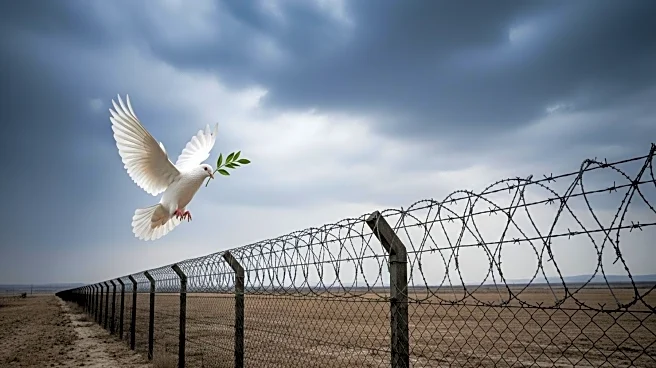What's Happening?
President Trump's peace proposal for Gaza has placed Israeli Prime Minister Benjamin Netanyahu and Hamas in challenging positions. The plan, which includes a full hostage release and Arab backing against Hamas, requires Netanyahu to make concessions, including an apology to Qatar. Hamas is reviewing the proposal, which it views as closely aligned with Israeli interests. The plan has received mixed reactions, with some Palestinian factions dismissing it as biased towards Israel, while others, including the Palestinian Authority, express willingness to engage.
Why It's Important?
The proposal's reception highlights the complex dynamics of Middle Eastern politics, where any peace initiative must navigate a web of regional alliances and historical grievances. The plan's success could reshape the geopolitical landscape, potentially isolating Hamas and strengthening ties between Israel and Arab states. However, the lack of a clear timeline and unresolved issues, such as Palestinian statehood, pose significant challenges. The plan's outcome could influence future U.S. diplomatic efforts and impact President Trump's legacy in international relations.
What's Next?
The next steps involve gauging Hamas's response and the reactions of other regional players. The plan's implementation will require careful negotiation and possibly further concessions from involved parties. The international community's role, particularly that of Arab states, will be crucial in facilitating dialogue and ensuring compliance with the plan's terms.









